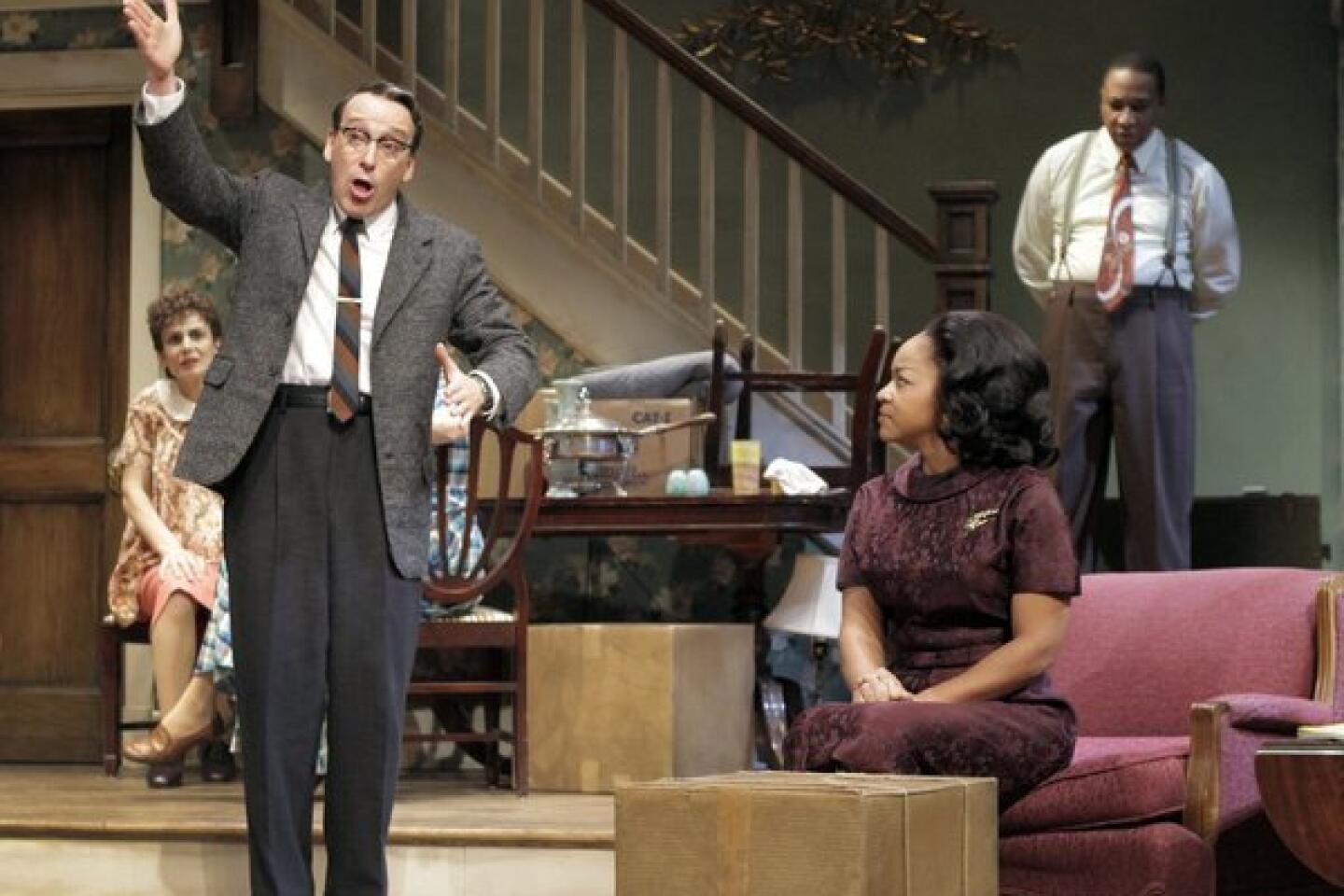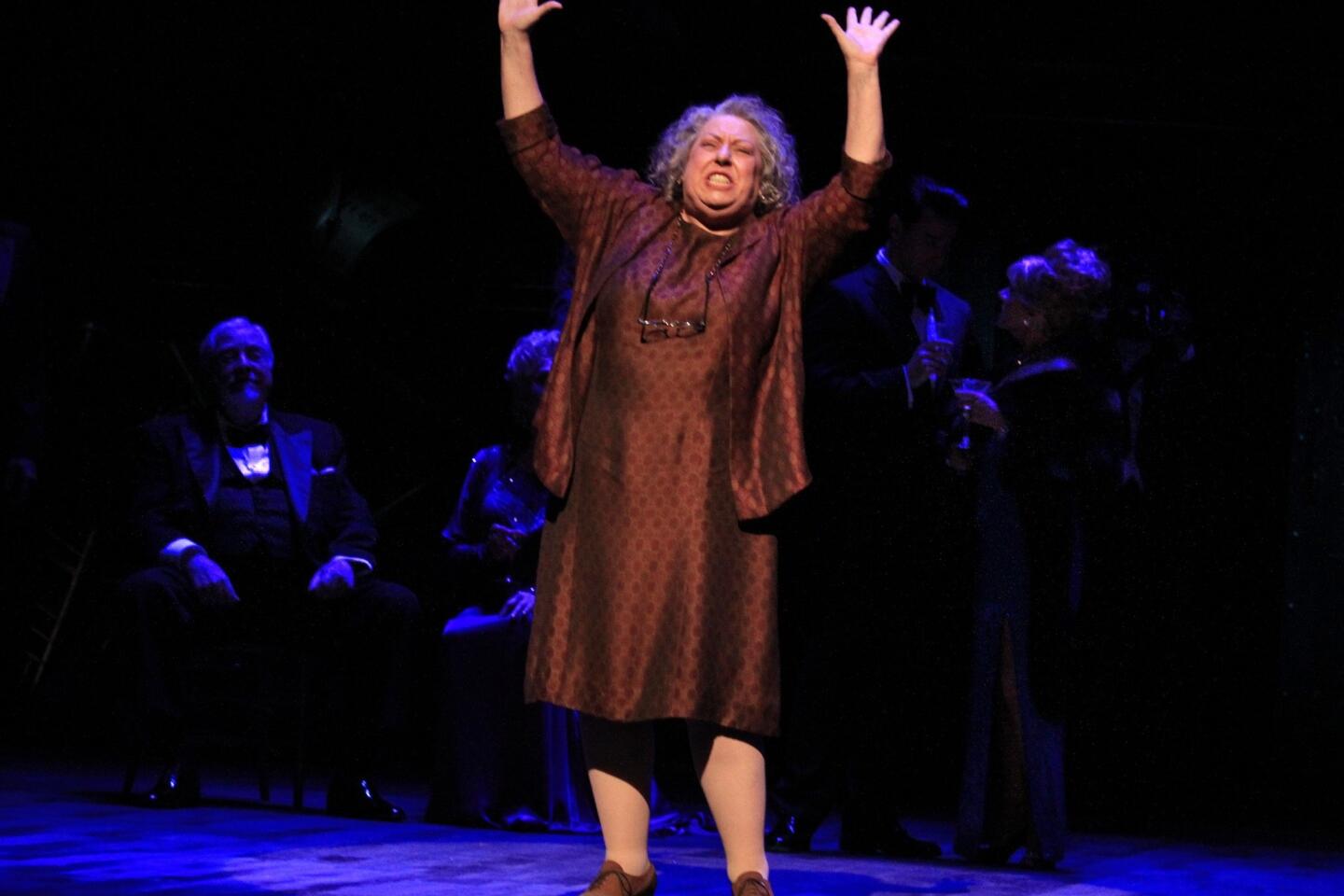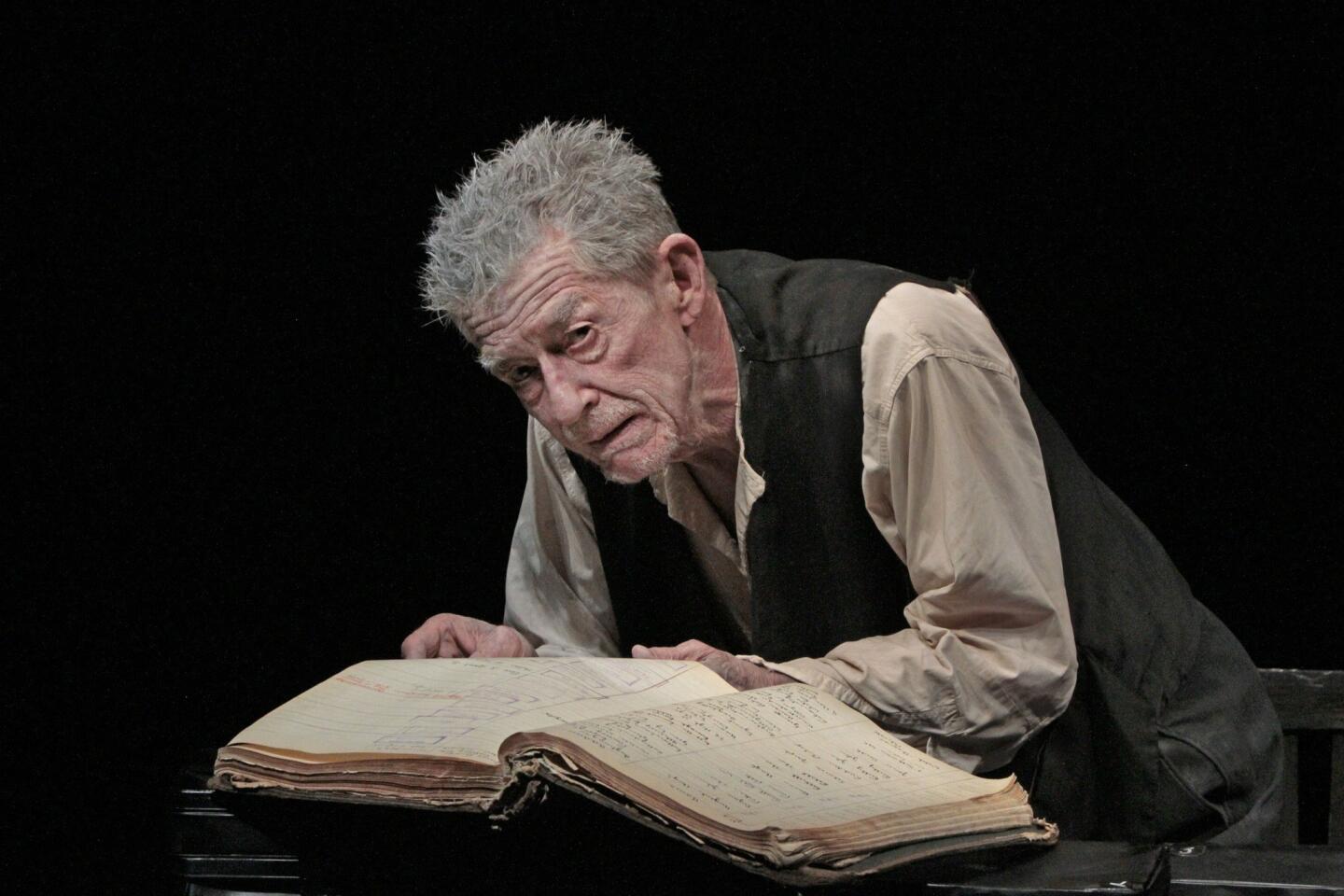Theater review: âThe Steward of Christendomâ leans too much on words
Whatever form Irish novelist and playwright Sebastian Barry happens to be working in, you can be sure that he will be drunk with language. Words make him swoon. He loves the way they sound and slide off each other, the singsong rhythms they fall into under his wand, their echo in time.
This devotion to verbal patterning is both his signal strength and conspicuous weakness as a dramatist. In âThe Steward of Christendom,â Barryâs 1995 play now being revived at the Mark Taper Forum as a star vehicle for Brian Dennehy, retrospective prose substitutes for dramatic action.
The graceful writing approaches the condition of music, but the play lacks momentum. Unbounded by the exigencies of plot, the talk at times seems as if it could stretch on to eternity.
CRITICSâ PICKS: What to watch, where to go, what to eat
Steven Robmanâs production is exquisitely rendered, but this second encounter with âThe Steward of Christendomâ (the first for me was in 1997 at the Brooklyn Academy of Music in a Royal Court Theatre production starring the great Donal McCann) failed to convince me that this prose portrait fully comes alive onstage.
Dennehy plays Thomas Dunne, the last chief superintendent of the Dublin Metropolitan Police, an organization aligned with the British crown. The Irish war of independence of the 1920s did away with DMP, but Dunne survives as a ghost of the past, a Catholic Irishman who rose as high as he could under the old regime and has fallen just as far under the new order.
Locked up in a mental home, his sanity fractured by the cruel blows of life and the whiplash turns of history, Thomas is a 75-year-old doddering wreck of a man, a Lear-like figure in grimy long johns fancifully babbling his story. Provoking these lyrical flights are characters â some from the present, some from the remembered past â who enter and leave his room like apparitions.
The contrast between Thomasâ dilapidated physical state and his dignified manner of speaking is striking. A suit is being made for him by the kindly hospital seamstress, Mrs. OâDea (Mary-Pat Green). He requests that she put some gold thread in the black cloth, but outward finery means little to such a broken man. Memory, at once his refuge and torment, is all.
Listen to him wax poetic when recollecting what were for him the glory days of Queen Victoria:
âIreland was hers for eternity. She loved her Prince. I loved my wife. The world was a wedding of loyalty, of steward to Queen, she was the very flower and perfecter of Christendom. Even as the simple man I was I could love her fiercely. Victoria.â
PHOTOS: Arts and culture in pictures by The Times
Such sentiments are the reason he is treated so cruelly by Smith (James Lancaster), the hospital attendant Thomas calls Black Jim. âA big Catholic ... killing poor hungry Irishman,â Smith taunts him before roughly washing him like mangy dog. âIf you werenât an old madman weâd flay you.â
Like Lear, Thomas has three daughters. Annie (Abby Wilde), a spinster with a bowed back, has remained (somewhat bitterly) by his side. The other two, Maud (Kalen Harriman), married with two children who are too fearful to visit their mad grandfather, and Dolly (Carmela Corbett), his favorite who fled to America, are painful absences.
Their lives have all been changed by Irish independence and the collapsing political fortunes of their father. A son (alternately played by Grant Palmer and Daniel Weinstein) was killed in the First World War, and not even his death is free of controversy, as many Irish loyalists saw any participation with the British forces as an act of betrayal.
âThe Steward of Christendomâ is the fifth in a series of plays about the authorâs family and its ties to Irish history. The play and program contextualize the decades of radical change that have brought Thomas to his present state of confinement in 1932 County Wicklow, but the details will no doubt be more meaningful to an Irish audience.
Frankly, the play seems an odd choice for the Mark Taper Forum. When I think of all the bright American playwrights yet to be produced by Center Theatre Group â Annie Baker, Amy Herzog, Christopher Shinn, Will Eno, Young Jean Lee, Tarell Alvin McCraney â I canât help feeling confounded by the decision to revive an Irish drama that not only is a level below that of Beckett, Synge and OâCasey but doesnât even carry the excitement of something fresh by Conor McPherson or Enda Walsh.
PHOTOS: LA Opera through the years
Of course the work provides a grand showcase for Dennehy, one of this countryâs most potent stage actors. Dennehy deserves a role with Lear-like dimensions, and I regret that I didnât get to see him take a crack at Shakespeareâs masterpiece at the Taper on Sunday.
His performance is forceful, courageous and heartfelt, and with the exception of some sloppy diction in a play that requires him to unfurl extended monologues, I have no cavils with his acting.
Nor do I have any with a production as beautifully lighted (Robert Wierzel) and scenically designed (Kevin Depinet) as Robmanâs. The supporting cast is first rate.
But the complicated sympathy with which Barry treats a protagonist caught on the wrong side of history simply doesnât have the same power outside of the playâs national context. The reason for this isnât entirely cultural. Itâs also artistic: The playwrightâs understanding of drama as a profusion of lovely words limits his theatrical reach.
------------------------------
âThe Steward of Christendomâ
Where: Mark Taper Forum, Los Angeles Music Center, 135 N. Grand Ave., L.A.
When: 8 p.m. Tuesdays-Fridays, 2:30 and 8 p.m. Saturdays, 1 and 6:30 p.m. Sundays. Call for exceptions. Ends Jan. 5.
Price: $20-$70 (subject to change)
Contact: (213) 628-2772 or https://www.centertheatregroup.org
Running time: 2 hours, 40 minutes
More to Read
The biggest entertainment stories
Get our big stories about Hollywood, film, television, music, arts, culture and more right in your inbox as soon as they publish.
You may occasionally receive promotional content from the Los Angeles Times.














